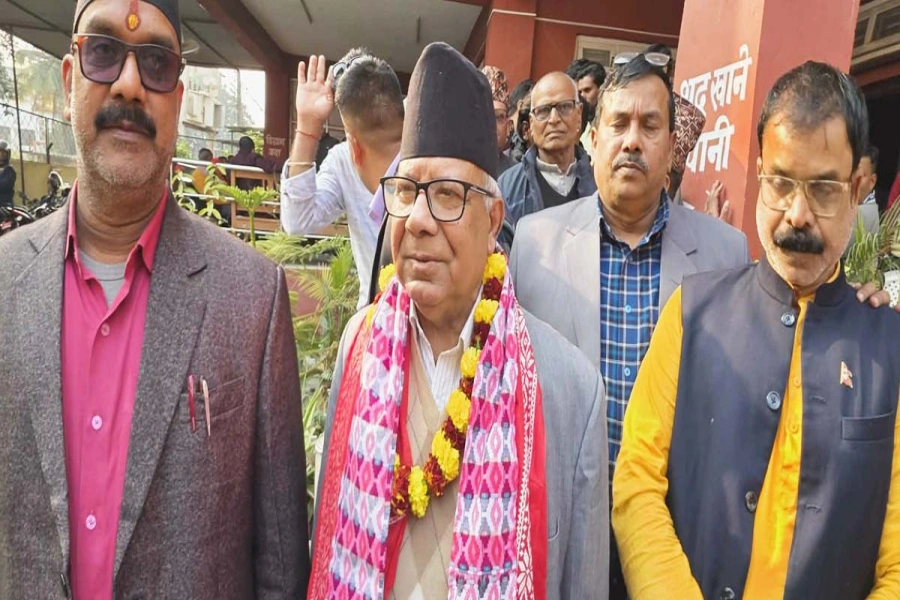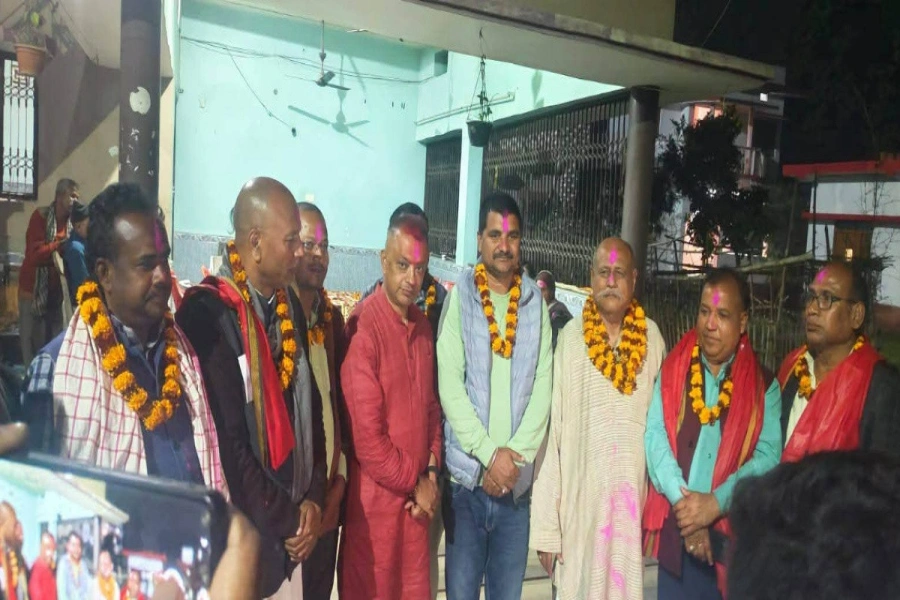1723 AD. In a buzzing fish market of Kirkcaldy, Scotland, a posthumous child was born and baptized as “Adam Smith”. In the same year, in a royal durbar on a hill of Gorkha, Nepal, the birth of a prince, Prithvi Narayan Shah, was being celebrated. This anecdote fascinates me more, when I remember two books published by each of them in 1776 AD - The Wealth of Nations and The Dibyopadesh (The Divine Counsel), respectively, and how these books curated the future of these two nations. The former book advises economic models, while the latter suggests political tantrums. That was the time, when Scotland was amidst Renaissance and searching for ways to increase productivity while the Shah Kings of Nepal were in a unification campaign, a political pursuit to accumulate power. And the rest is history.
Both of these treatises talk about division of labor, but with significant theoretical differences. In our part of the world, the division of labor was first introduced by Jayasthiti Malla in Manav Nyaya Sastra, based on rules quoted in the Hindu script Manusmriti. Since then, the Nepali version of division of labor was based on a caste system, later reinforced by Gorkha Kings, too, where each caste was allocated a job. The history literature shows that there used to be a huge public support to this practice of division of labor in the past, as it might have increased productivity due to specialization. But, later, this division of labor based on the caste system was used as a tool of discrimination by the elites and rulers and jobs were de facto categorized as superior and inferior, which ultimately caused our innovation and productivity to go down.
Dibyopadesh further fostered the caste-based division of labor. Shah always favored Khas over Brahmin, Thakuri and Magar, for warfare. Only four castes - Khas, Magar, Gurung and Thakuri - were allowed to carry weapons. Brahmins were considered suitable for priestly activities and strategy making. Further, Shah always wanted to have formal rules on division of labor based on their castes, which is explicitly mentioned in the Dibyopadesh. Thus, it shows that our rulers might have understood the importance of labor division but failed on the execution part by giving grave importance to caste rather than the specialization of labor.
In contrast, the Smithian version of division of labor was based on specialization, with no strings attached. After Smith visited industries from several regions of Europe, he concluded that the greatest improvement in productive powers is possible only because of the division of labor. He illustrated this by giving the example of a pin factory, where it's hard for a pin maker to make 1 pin a day if s/he does all the tasks. But, by allocating the smallest unit of work for different people, that is with proper division of labor and specialization, a factory can produce tens of thousands of pins per day.
Though the west understood this phenomenon a couple of centuries ago and worked on developing skillful workmens with narrowed focus, we are still vehemently avoiding the essence of division of labor. Ranging from bureaucracy to academia, we are undermining the power of division of labor. Sadly, the generalization of labor is the reality of our times.
Child labor situation in Nepal: challenges and ways forward

In the bureaucracy
To date, almost all the vacancies in our bureaucracy are filled without the practice of functional recruitment, and a preference to ‘jack of all’ can be seen. This brings no specialization and expertise on the labor. Rather, we experience ‘generalization of labor’, and no civil worker is the ‘master of one’. For instance, in the central bank of Nepal, which requires expert technocrats in the job, a newly recruited employee is expected to work as researcher, supervisor, manager, regulator, policymaker, etc concomitantly. But how can one person excel in all the aspects of central banking? It's near to impossible. The same applies to all other governmental institutions.
As per Smith, the division of labor increases productivity via three ways: first, by increasing dexterity in each particular workman by making this operation sole employment in life. Second, by saving switching time in passing from one species of work to another. Third, division of labor leads to invention of efficient systems, enabling one man to do the work of many. But, in our case, how can we expect the Sachib saab (special class government officer) who rotates the office every 1 or 2 years to bring about change in the policies and procedures.
In the academia
Academia is also the partner in crime when it comes to failing to instill focused expertise in students. First, the schools have generalized lessons to teach, until the students complete high school. This sets the base for making a loquacious mass, but not knowledgeable scientists in a discipline. Next, the prevailing reward system for students is a disaster. I have never seen a school or university that recognizes each set of talents and rewards each of them equally. If a high-scoring student is awarded gold medals, then why not give the same sort of reward to those with skills in some other dimensions?
It's the fundamental law of nature that each child has some alignment towards one of the skills among the many: oratory skills, writing skills, literary skills, marketing skills, HR skills, etc. But the reward differs, although students are equally talented in their fields of specialization. In our part of the world, a student with higher grades is much more entertained than a student who is a connoisseur in music or something else. Whereas a nerd with high grades is provided with incentives, both financial rewards in the form of scholarships and social rewards in the form of recognition etc. This has formed a false narrative that students must, at any cost, hone his/her memory and publish high ranks in grade sheets. But, if success is measured in terms of the money earned or satisfied life, nerds rarely make up that place.
By nature, humans are equally geneious. And they have their own fields or concentration of expertise based on their physical or cognitive or psychological abilities. So, the education system should recognize this and make students ready/skillful through equal rewards and foster their specialization. This brings out honed skills and makes them master that particular thing.
In the world of intellectuals
One of the veteran economists had once joked with the author saying- Nepal is the country containing the highest number of experts and scientists. And that’s so true of us. We just never say- ‘I don’t know this’. But in reality, most of us, including myself, do not have in-depth knowledge on a particular subject but have our own sort of distorted and lopsided opinion on every subject matter, despite the expertise on the subject of interest. And every time, we get proved otherwise. Further, glancing over the trending newspaper, it’s easy to find out that the same author writes/interviews on issues ranging from economics to education system to political science to diplomacy to cryptocurrency to consumer marketing and even business management.
That’s what blocks the clarity over any dimension of our societal problems. How can a person be ‘Mr Know It All?’ Their words sell out because of the Matthew effect but that creates distortion in the market of knowledge. This accumulation of varied and shallow viewpoints alters the truth narrative, to some extent. In this context, media and publications should have very strict reservations on this, as the stories they cover form the citizens emotions. Intellectuals should restrain themselves within the limitations of their expertise, rather than wishing to be ‘Talk of the Town’ in each subject.
To conclude, functional recruitment could instill the bureaucracy with skill, dexterity, and maturity in civil workers. To bring out creativity and increase productivity, simplification of labor is mandatory. Private sector employees are somehow efficient at their role/tasks, and thus their output is incomparable viz-a-viz public service, because they are somehow fitted in the job. Not all the servicemen shall be experts, but a certain proportion of cadre must be. So, the government shall learn some lessons from the private sector, particularly, in this matter. Similarly, reward to each skill is necessary, and academia needs to reengineer their motivation system. Finally, the ones who love calling themselves intellectuals, shall restrain themselves within a specific branch of knowledge so that they can be ‘jack of all, master of one’. So, it’s high time we acted on the true spirit of division of labor, as advanced by Smith.





































